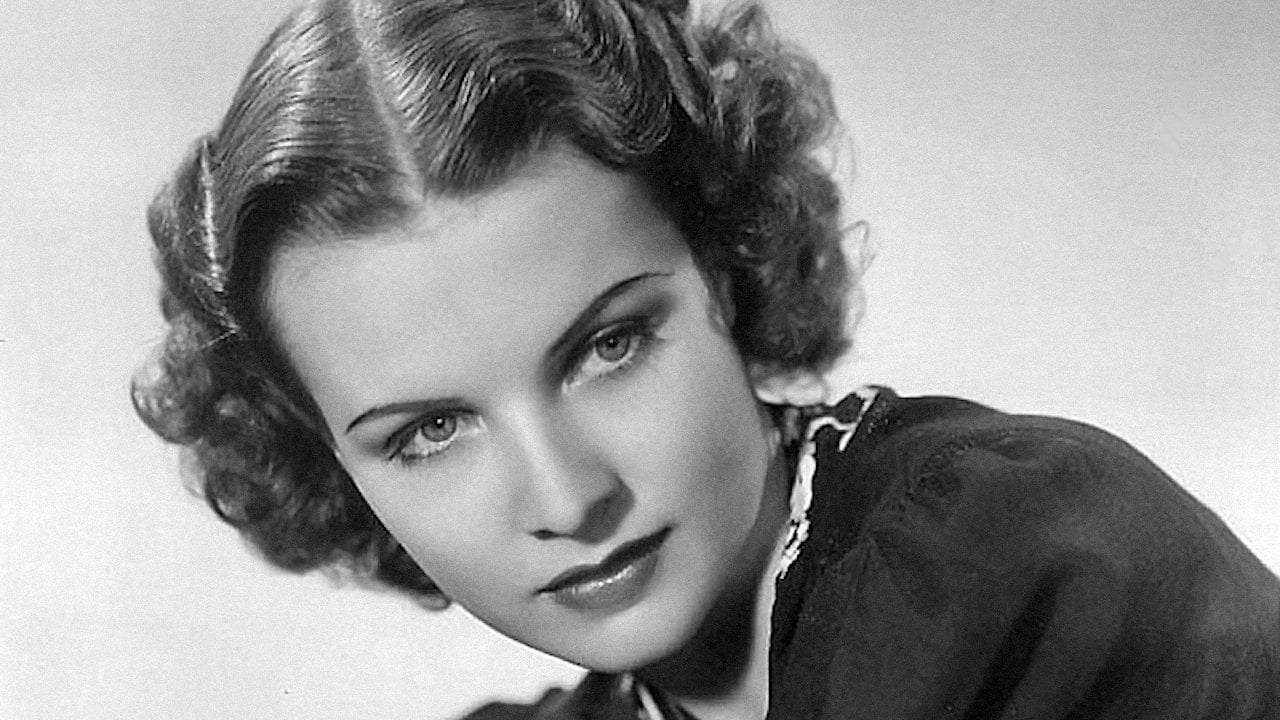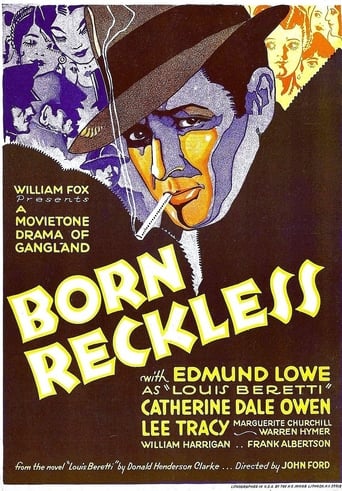Whitech
It is not only a funny movie, but it allows a great amount of joy for anyone who watches it.
Humbersi
The first must-see film of the year.
Sienna-Rose Mclaughlin
The movie really just wants to entertain people.
Gary
The movie's not perfect, but it sticks the landing of its message. It was engaging - thrilling at times - and I personally thought it was a great time.
drjgardner
"Born Restless" is a 1930 gangster film that surely rates as one of the worst gangster films of all time, made even worse when you think of the great gangster films that came out in the early 30s – "The Big House" (1930), "Little Caesar" (1931), "Public Enemy" (1931), "The Beast of the City" (1932), "Scarface" (1932), etc.The version I saw had the worst sound of any film I've viewed, so this added to the problem.Edmund Lowe plays the star. Lowe was a leading man in the silent era ("East of Suez". "What Price Glory") and he plays this one as if it were a silent film, and given how poor the dialogue is, you wish it was a silent film. He did some good work later on (e.g., "Dinner at Eight", Dillinger") but in this film he is wooden.Lowe isn't the only wooden actor. Almost all the scenes are staged with nary a movement.This is a John Ford production and Ford gets credit as a co-director. It reminds us that while Ford gave us about a dozen of the finest films ever made, he had a lot of clunkers too, and among his finest films I can't recall a gangster film.All things considered there isn't any reason to watch this film. You may be curious, as was I, about viewing an early John Ford film, but give this one a miss and go with "The Lost Patrol" (1934) or "The Informer" (1935).
mark.waltz
It's a shame that this early talkie by John Ford is as poor as it is. The potential is there for an early "Little Caesar" and "The Public Enemy" (released only a short time later), but lacks the pacing of those similar gangster films which have become classics while this one just lays there. Fox Studios didn't have the same type of camera equipment as Warner Brothers did, and it shows. Tinny sound recording, a mostly grounded camera which barely moves, and lighting that only once in a while shows signs of life. The performances can be described as less than adequate, the actors all speaking their lines extremely slow, even such talented actors as Edmund Lowe, Warren Hymer and Lee Tracy, directed to draw out every word. The story covers World War I (with a bit of witty dialog here and there during the training sequences) through prohibition (with the most boring criminals imaginable) and bogs down in a mother love story that fortunately doesn't overstay its welcome. It also contains one of the most bizarre blunt endings I've ever seen in films, literally flashing "The End" titles without really even ending the scene it is in the middle of.
Michael_Elliott
Born Reckless (1930) * 1/2 (out of 4) John Ford drama about a wannabe gangster (Edmund Lowe) who gets busted after a heist but instead of going to prison, the judge makes a deal with him. Instead of jail the man will enlist for WW1 and if he serves his country proudly then the judge will throw out the evidence against him. This all goes well and the man returns home a war hero but he soon learns that his old gang has killed his brother in law so he goes out for revenge no matter what it might cost him. In the end, this film is killed by its standard and routine screenplay, which tries to do way too much and it doesn't do any of them in any original form. The movies tries to mix the gangster genre with a war genre with an added touch of the revenge drama but all three are boring and don't feature anything we hadn't seen countless times in the silent era. I've never been a fan of Lowe but he actually comes off decent here and plays the role off as well as can be expected. The supporting cast, including Lee Tracy, are all standard and forgettable. The climax of the movie is certainly the best thing and Ford's use of a swinging door leads to a great thing but there's nothing else going on here.
arthursward
With such fluid epics as "The Iron Horse" (1924), "Lightnin'" (1925), "Hangman's House" and "Four Sons" (both 1928) in his resume, it is surprising that Fox would encumber Ford with a dialogue director over and over, but Fox did. In '29's "The Black Watch" it was Lumsden Hare. Andrew Bennison is credited with the stage direction of "Men Without Women" released January 1930. Judging from the result Bennison achieved in "Born Reckless" (released in May 1930), I'm astonished anyone would have given him a second chance.The photoplay opens with a traveling camera shot of a parade. The camera prowls into a jewelry store where a heist is in progress. Outside, the cops "get wise" when a stolen truck is discovered. An exiting shootout and chase ensues, with our hero, Louis Berretti, gaining refuge at his parents' apartment. Then Bennison's stuff takes over. Well, molasses in Anchorage moves better and the pace of the film congeals. Berretti faces justice (eventually) and is "sentenced" to join the war effort overseas. John Ford stages some excellent sequences here, with Berretti's approbatory service delivering him home a hero. He opens a nightclub which, unfortunately, keeps Berretti rubbing elbows with his old mob and allows plenty scenes filled with Bennison-helmed hubris. The dialogue is not only awkward with head-shaking gaps, but has characters with names like Big Shot putting people "on the spot" [murdered].Audiences of 1930 could not fast forward but you can and should. Edmund Lowe's performance is nothing like the smooth "Chandu" of a year later and probably should be skipped over to view Ford's impressive set pieces. The swamp at the picture's conclusion cribs Fox's "Sunrise" but remains impressive for an early talkie. I gave it a 7 for Ford's contributions. On the whole, though, this is the kind of film that gave early TV viewers a bad taste for early talkies. Viewers beware.


